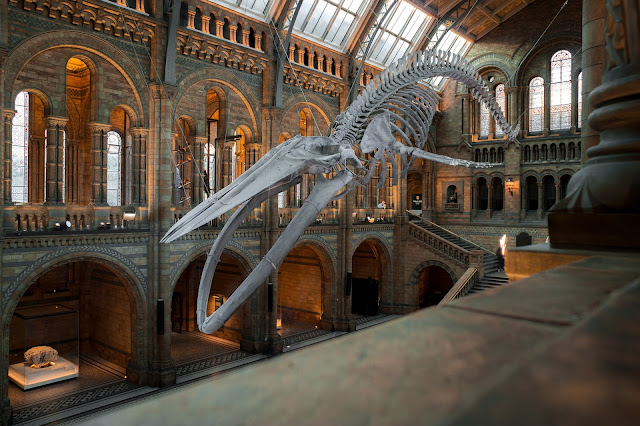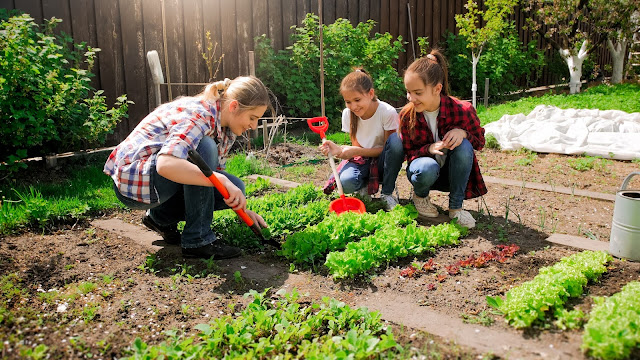Are your children interested in science?
Trying to get kids interested in the STEM subjects (Science, Technology, Engineering and Maths) can be an uphill struggle with many kids put off these areas at a very early age.
But often a child's attitude to education, and even to different subjeect areas, can be formed through their parents' attitude towards them.
If you want kids to be interested in science and the STEM subjects then you need to prioritise family activities and attitudes that encourage this.
Read on to find out how to give kids a head start in the subjects that will determine our future world by encouraging an interest and science-based activities.
1. Show them that science is exciting
Children will study many subjects in school, including science.
As a parent you can help by telling them and showing them thaat science is exciting.
Even if you didn't enjoy science at school yourself or feel like you don't know enough, avoid saying negative things about such a wide subject.
You may have hated chemistry and learning the elements of the periodic table (me!) but you can still encourage your child to learn about dinsoaurs or space exploration or the laws of physics.
2. Visit museums
Treat learning about science like a voyage of exploration for the whole family.
Visit Science and Natural History Museums together to find out about the world and prompt more and mroe questions and discoveries.
Not only are museums a great day out, they are a great place to start learning more as a family.
Most kids love dinosaurs and space, so start there, then go on to see what else the museum has to offer.
Some natural history museums have a planetarium attached too, a visit there is a great way to get them interested in exploring the stars, or just lay a rug out in your backyard and observe the night sky.
Many museums offer a "Night at the Museum" sleepover experience, which could be a fun activity for the whole family.
Many museums offer a "Night at the Museum" sleepover experience, which could be a fun activity for the whole family.
With hands on exhibits and many modern museums offering fun games, activities and challenges, kids will have no idea how much they're learning!
3. Discuss career options
Children often talk about what they want to be when they grow up.
Encourage them to think broadly about this and encourage them to believe they can be anything they want to be.
Take the time to research some different career paths you may have not even heard of and make soem new and unusual suggestions to your kids.
Spend some time together thinking about all the possible jobs there could be in certain fields.
We love the books What Do Grown-ups Do All Day? and What Do Scientists Do All Day? for showing the sheer variety of jobs out there.
Think too about what qualifications will be necessary for certain jobs.
Remind children that they will have to do well at science in order to get accepted into college to become a doctor, an astronaut, a veterinarian or an engineer.
Focus on the fact that there are a lot of opportunities out there if they do well in science.
Focussing on future opportunities they really love is one way kids can begin to care more about doing well at a subject their peers may not be so keen on.
4. Buy educational toys, games and books
Whether it's birthdays, Christmas, easter or just because, you want to get your child gifts they love.
Of course, every parent has a budget, so make your money go further with quality educational toys, games and books they can really learn from.
For example, a microscope, fossils and geology sets or chemistry sets.
See more:
5. Spend time in nature
One of the easiest ways for kids to learn about science is through observation.
Go on Nature Walks regularly and get kids outdoors observing plants, insects and animals from the earliest age.
Nature walks can be fun if you take the time to learn more about the trees, animals and geological information as you go.
Learn how to identify different trees and flowers and encourage kids to start a nature journal to record their findings.
You could also foster care for the environment by taking along some trash bags and cleaning up and recycling as you go.
Wherever you live there is nature around you to observe, record and discover, you can even learn science in your backyard!
6. Make the most of weekends and school holidays
Choose what kids watch on TV carefully, especially when they are very young.
Encourage an interest in documentaries about science and nature, programmes that inspire and TV shows that encourage kids to think or get up and do something.
You could even give your children research projects to do in their spare time so they are not just sitting around watching TV or playing computer games!
Even kids who go to school can learn at home or be homeschooled in their spare time, just make it fun!
Bake together, research a favourite animal and its habitat, conduct some fun at home science experiments, create dioramas or garden together.
The possibilities are endless!
7. Learn together
The one thing children want more above everything is time with their parents to connect and share.
Make the time to learn together by watching documentaries, reading books, visiting places of interest, going on nature walks, etc etc.
You could also look at great science-based websites together.
For example, visit the NASA site to learn more about our solar system.
Observe animals through webcams and learn more from great scientists and animal advocates like Jane Goodall and David Attenborough.
Spend time talking too. Visit zoo sites to learn more about the animals and spy on them through the pandacam, then observe them in nature.
Discuss the issues of captivity, conservation, destruction of habitat, and climate change.
The more you talk and engage in scientific learning with your kids, the more they will enjoy the subject matter and the more they will learn.
By doing these activities, tailored to the age of your kids, you could help encourage a life-long interest in science and amazing prospects for their future.
Read more:
This post contains product and service links for your convenience. By clicking on these links I may earn an affiliate commission at no additional cost to you. I only suggest resources and items I believe in and highly recommend. Find out more on our Disclosure page.








